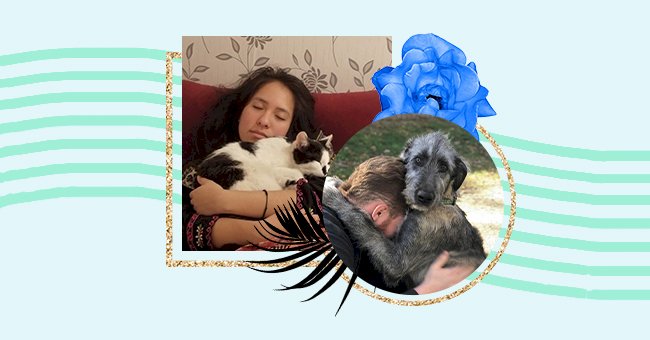
A Glimpse Into How A Pet Can Positively Impact Your Mental Health
Do you feel like your pet understands you? Pets can sense when you are not in the right headspace, and they can help you get back to being happy!
Pets are intuitive creatures; they are smart enough to understand instructions and emotions. This makes them great companions because they can provide similar comforts to other humans, such as love and protection.
Pets make great companions in life because of their loyalty; they will never leave you as long as their needs are met, or I mean if you don’t leave the door open for them to go running into the street!
Bonds With Animals
In the late 90s, researchers noted our relationship with animals and how it benefited us. They noticed that people who had pets were more socially interactive and took note of a decreased stress hormone cortisol after playing with their pets for 45 minutes.
You have probably tried to communicate with your pet in their language, whether you sat slowly blinking at your cat to tell them you love them or barked alongside your dog when someone was outside. When we look at pets, we experience a rush of hormones that make us feel happy, and research has shown that dogs experience the same rush of oxytocin we get when they see us!
Emotional support
Humans find it stressful interacting with each other, and animals have created a buffer to make people feel comfortable enough to socialize with each other. Animals provided a sense of comfort and ease, thereby allowing you to become social and feel less stressed.
Playing with your pets is a great way to boost your dopamine and serotonin levels. These hormones are present when you feel happy, and if just being around your chosen companion can boost your mood, why not spend more time with them?
Loneliness and Depression
Having pets provides us with a sense of purpose because these animals we keep in our homes rely on us for food, warmth, and shelter. Our need to feel needed is met when caring for something like a pet.
Pets provide us with companionship, and they also allow us to socialize with other humans because of them. That means we're now talking to neighbors and making new friends because we want what's best for our fur babies, and talking to other people helps us provide them with only the best possible care!
No specific animal is responsible for helping combat depression and loneliness. You can also find companionship from animals such as fish or headed dragons; as long as you feel comfortable around the animal, they can make you happy.
Health Benefits
Studies show that having a pet can lower your blood pressure and decrease heart disease risk, especially dog owners. This is because of the responsibility that comes with owning a dog.
Dogs need to be walked every day, and if you have a high-energy pup, you'll take an interest in taking them for long walks, so they don't wreak havoc in your home! We know how a bored pup is a naughty pup!
Schedule
Pets help us stay organized, which is especially helpful to people who deal with anxiety and depression. Having a pet means having a strict schedule when they need to be walked, bathed, and fed.
If your pet’s schedule changes or is delayed by even a minute could make them unruly. So pandering to your fur child's every need at specific times means that you will also have a stricter schedule and may be able to manage your time better!
Other Ways Pets Help
Pets help children with ADHD release a lot of the energy they have so that they can better focus on their school work. Dogs, in particular, help kids with autism acclimate to different senses such as sound and touch.
Dogs have been used to help humans with specific diseases; some of the few things they're good at are guiding people who have visual disabilities or assisting those who have epilepsy.
Many pets help owners who suffer from PTSD from war or violent situations. These animals provide comfort and care by helping distract humans and avoiding emotions of stress. Even if your pet isn't trained to be an emotional support animal, you might still find yourself turning to them when you are in distress.
So today, when you're spending time with your fur buddy, remember to thank them for all that they’ve done for you! Give them extra pats and treats just for being your emotional pillar of support in times of crisis!